
May 03, 2023
IIIT Manipur Plans: BTech CSE with placement guarantee; producing cyber-security experts
IIIT Manipur Plans: BTech CSE with placement guarantee; producing cyber-security experts
IIIT Manipur will offer its own certificate, diploma courses, plus a specialised BTech in computer science engineering with placements guaranteed.
NEW DELHI: Indian Institute of Information Technology Senapati, Manipur (IIITM), established in 2015, will soon offer programmes in cyber security, forensic analysis and robotics. In a conversation with Careers360, its director, Krishnan Baskar, spoke about the flexible structure of programmes and industry-institute joint BTech in computer science engineering (CSE) that will also guarantee placements.
Q. IIIT Manipur is establishing itself as an Institution of Excellence in Cyber Security, Cyber Crime and Forensic Analysis. Why this area and what are your plans for it?
A. We are increasingly going digital and with that comes a security risk. It is equally important that we have protection of data and protection of transactions and the only way we can do this is through cyber security, network security and data security. Manipur is well connected to South East Asia and, therefore, we wanted to see that IIIT Manipur plays a major role in creating human resources in this field to not only meet the requirement of Manipur or our country but also that of South East Asia.
I took charge as a regular director one year ago. During the last year, we have been working actively in line with our vision and mission and therefore we introduced courses related to cyber security. We signed agreements with the National Forensic Science University, Gandhinagar, and IIT Bombay. The arrangement will be like this: our students can go and do one semester in the specialised programmes and come back. The National Forensic Science University is one of the leading institutes in digital forensics. They also have established facilities in cyber security.
We are also establishing a Centre for Cyber-Physical Systems. With private partnership, we will have our own certificate and diploma programmes – apart from a specialised programme for our own BTech students – in cyber security and networking from the next academic year.
Q. You have studied and worked in public institutions. IIIT Manipur was set up as a public-private partnership (PPP). What differences do you see?
A. There are 25 IIITs – five are fully public-funded, the rest work in PPP mode. In northeast India, the percentage of the partnership is slightly different. In the mainland, the private partner has 15% share; the state government, 35%; and the union government, 50%. Since the northeastern states do not have much industry, its share is 7.5%; the state’s 35%; and the union governments, 57.5%. Also, this sharing pattern is for capital investment. As Manipur has no private companies, the state’s information technology department is giving the 7.5%.
The government of Manipur has given 150 acres on which we are building our new campus. It will be ready for 2024-2025. We already have a campus in Imphal. The high-tech IT city is coming up just opposite our campus. This is supposed to be a temporary campus but the state government has entered into an agreement for 50 years which means we are going to use this campus for 50 years.
IIIT Manipur, like the other 19 IIITs, will also run on its own earning which will come from tuition fee, consultancy, technology transfer and sources.
Q. You are planning undergraduate programmes as per industry demands. How will these work?
A. We are negotiating with a company in India to offer a programme in computer science and engineering (CSE). The company will tell us the kind of curriculum they are looking for and it will be prepared by our board and we will run the programme. Based on the revenue generated from tuition fee and their expenditure, we will share earnings. They will take care of any infrastructure required and faculty salaries for the programme. The degree will be awarded by IIIT Manipur. Plus, every semester we can change courses depending on the demand.
The best part of this is that on day-one of joining, the student gets a placement letter guaranteeing a salary of Rs. 8 lakh per annum which is an assured placement for joining the industry-institute joint programme. Also guaranteed will be a six-month industry internship training programme with a minimum of Rs. 20,000 per month as stipend.
We have a flexible model. If a student joins for CSE or electronics and communication engineering (ECE) and wants to specialise in cyber security, we will give specialisation in that domain, for example, BTech in computer science with specialisation in cyber security.
Q. You are also working on robotics facilitating human life.
A. We are planning to have it one year later because it is more interdisciplinary – we need to have mechanical-related designs and electronics and computer science. At the moment we have some specialised courses related to robotics for our ECE students and it is also open to computer science students but we have not yet offered a BTech in robotics. It is in the pipeline for the coming years, once we have a dedicated mechanical design-related laboratory.
We are a very young institute and now our main focus is more on creating a strong foundation for our academic activities. The PhD programme is more on translations. With the government of India, our faculty is working on Manipuri language translation to English, Hindi and other regional languages. There are 34 sub-languages within the Manipuri language, each very different from the other. Our faculty is trying to work on those languages also. We have chosen two for now.
Q. Given its location, do you find it challenging to recruit teachers?
A. No. I come from Tamil Nadu, I was also a vice-chancellor and a director. I come from Anna University, College of Engineering Guindy, and I feel that [Manipur] is developing fast and for the last five-seven years, the railway line is coming up. Road infrastructure is coming up.
Recently, when we advertised for our temporary, guest faculty kind of positions, we got very good candidates with publications in international journals, PhDs from Japan, Germany and the United Kingdom, we also got candidates who completed post-doctoral studies in Korea, Japan. Also, many Manipuri candidates who were working all over the world with very high qualifications would like to come back and work for the state. I don't see any kind of problem in terms of recruitment. We have good quality teachers.
Q. Do you adopt any special strategies for placements? Campus job drives tend to be most successful where the institution is close to a major city. How have the placement records been so far?
A. Last year our average package was Rs. 12 lakh. About eight students last year got close to Rs. 45 lakh. All over the country, the computer guys and ECE guys are most wanted, and the market demand is very high. 70 percent of the job market today is based on IT-related sectors only. The placement is very good and not at all a problem. Every year we do have one or two students who do not want to study. We can't help that and we cannot compel them to study in a democratic system.
Q. Are there any plans of collaborating with foreign institutions? What will be the nature of those collaborations?
A. We encourage our students to go to any university in the world, study one semester and then come back and we will have a credit transfer. Foreign collaboration will be on bilateral research, apart from the exchange of students. Research will take some more time. Once we have stabilised our undergraduate programme, then we will concentrate on research. At the moment we are concentrating on undergraduate and PhD programmes.
Recent News
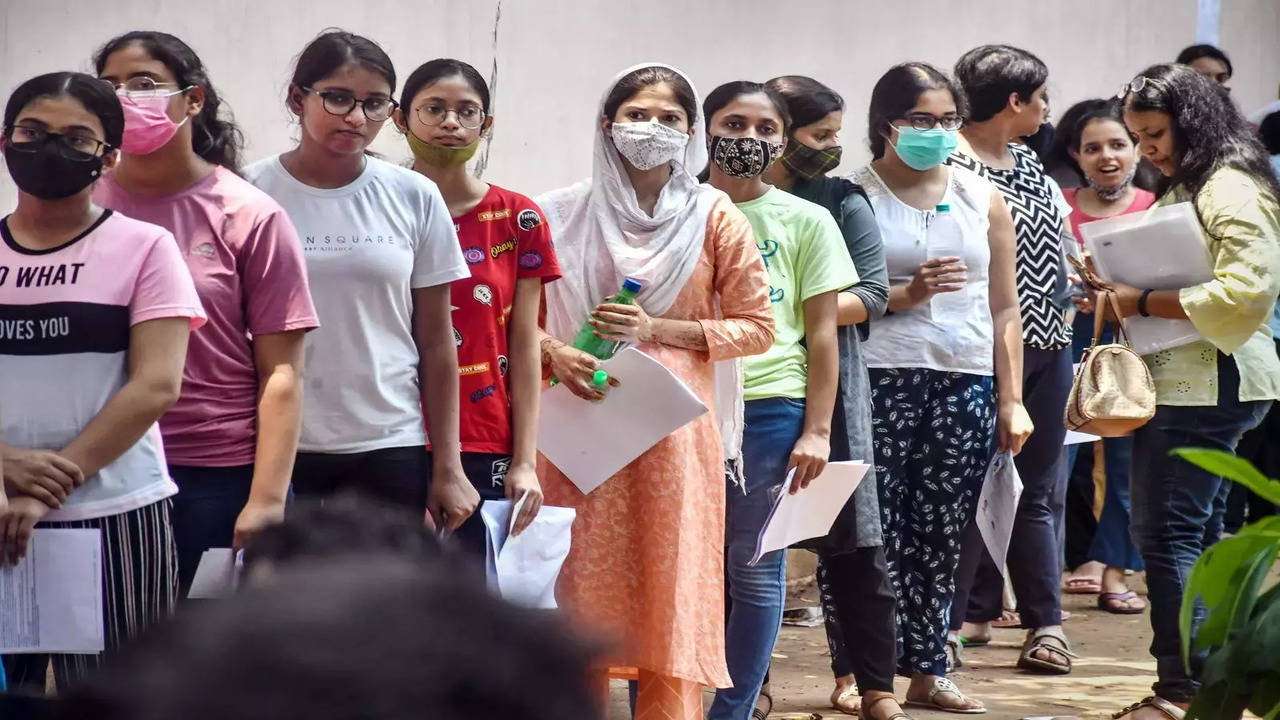
NTA COMPILATION JUNE 2024
Posted 10 months ago
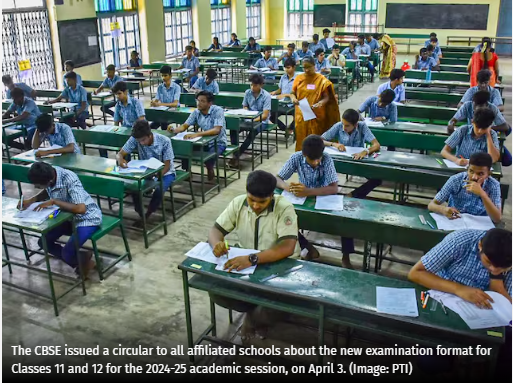
CBSE Changes Year-end Exam Format for Classes 11, 12; Weight...
Posted 1 year ago
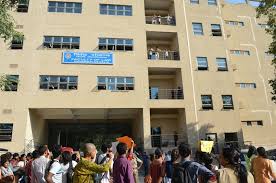
Faculty of Law, Delhi University introduces five-year integr...
Posted 1 year ago
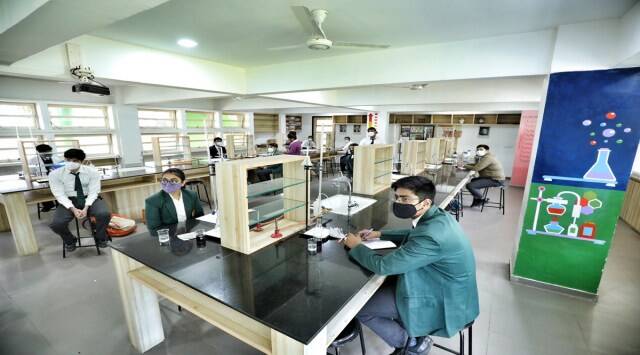
NCERT drops periodic table chapter from Class 10 science tex...
Posted 1 year ago
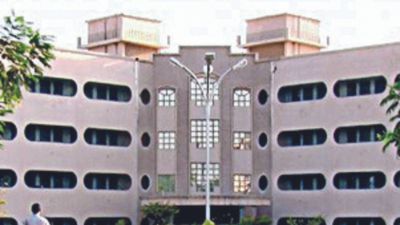
Now, humanities students can pursue BTech in CSE
Posted 1 year ago
